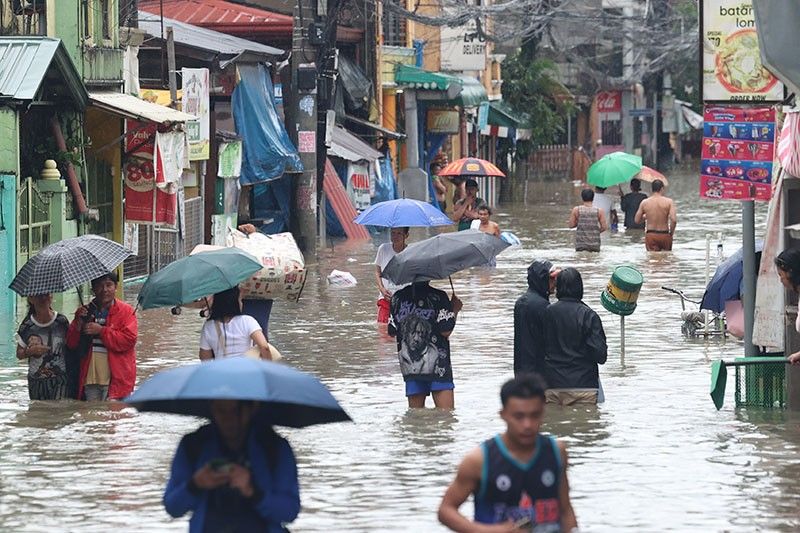The typhoon toll and the call for true climate education

As the first of the 'ber' months rolled in, the Philippines found itself grappling with yet another natural disaster—Typhoon Enteng. Coming just after Typhoon Carina struck in July, Enteng brought torrential rains, strong winds, and devastating floods across Northern and Central Luzon. Trees were uprooted, power lines downed, and thousands of residents were forced to evacuate their homes.
Despite the yearly onslaught of typhoons, the country remains vulnerable, with each storm leaving a trail of destruction in its wake. This recurring scenario raises pressing questions: Why, despite millions of pesos allocated annually, do the effects of typhoons remain so catastrophic? What has happened to the funds earmarked for flood mitigation?
One answer may lie in the deeper, systemic issues within our disaster preparedness strategies, which are, in part, a reflection of our education system’s approach to climate change.
A study conducted by my team in 2023 highlighted critical gaps in how climate change education is integrated into the basic education sector. While initiatives like the Youth for Environment in Schools Organization (YES-O) exist, they are often limited to co-curricular activities, rather than being woven into the core curriculum.
This means that students might engage with climate change issues as an extracurricular interest rather than as an essential part of their education.
Our findings reveal that while schools are making significant efforts to raise awareness about climate change, the overall impact on students’ behavior and comprehension of climate-related issues remains somewhat constrained.
This limitation stems not only from gaps in knowledge but also from substantial challenges related to infrastructure. Schools’ initiatives are frequently hindered by inadequate resources, which undermine their capacity to effectively implement comprehensive climate education and foster meaningful behavioral change among students.
Moreover, while disaster risk reduction and management (DRRM) is included in the senior high school curriculum, particularly within the STEM strand, the implementation has been inconsistent. This inconsistency leads to confusion and gaps in understanding, leaving students and communities underprepared for the realities of climate change and its impacts.
This brings us to a critical point: real change requires a holistic approach that goes beyond the classroom. The education system must work hand in hand with local government units (LGUs), higher education institutions (HEIs), and community organizations to ensure that climate education is practical, relevant, and impactful.
Immersive learning experiences, where students actively engage with their communities to address climate-related challenges, can foster a deeper understanding and commitment to sustainability.
Our study recommends a thorough reevaluation of the Philippines’ sustainability agenda, with a focus on embedding environmental education across all subject areas. This would not only prepare students academically but also cultivate a generation of environmentally conscious citizens who can lead the charge in disaster preparedness and climate resilience.
As the frequency and severity of typhoons increase, it’s evident that our current strategies for disaster preparedness are inadequate. To build a truly resilient nation, we must critically examine how funds are allocated and utilized, and rethink how we educate the next generation about climate change.
Given the Philippines' vulnerability, climate change education needs to be deeply integrated into daily life, supported by a systemic approach that spans policy, budget allocations, school curricula, and community action. This integration will ensure that every Filipino remains vigilant and reflective about the environmental impacts of their actions.
Read more about our research here: https://www.pnuresearchportal.org/wp-content/uploads/2024/02/Policy-Brief-Vol-8-s.-2.pdf.
Allen A Espinosa is a postdoctoral fellow at the Faculty of Education of Charles University in Prague, Czech Republic. He is currently on study leave as professor of Science Education at the Educational Policy Research and Development Office of the Philippine Normal University. He researches on a wide range of topics, including policy research in education, teacher education, information disorder, and social justice in education. You may reach him at [email protected].
- Latest




























